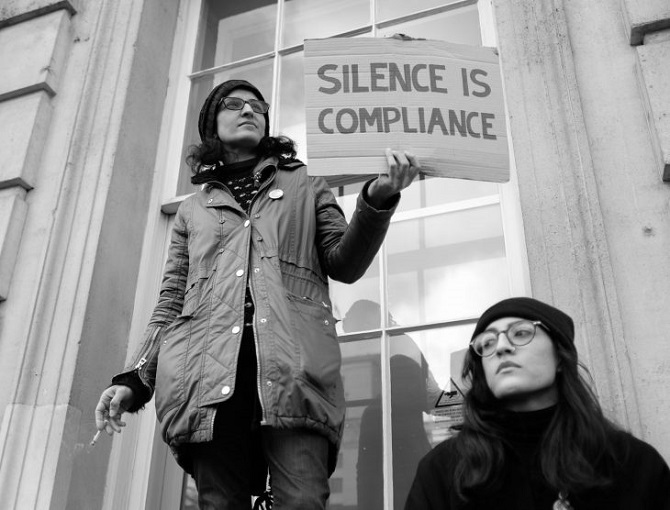Donald Trump’s recent action—assassinating a nation’s top military lead without visible, immediate provocation—was sufficiently dangerous as to warrant a conversation that as yet, I don’t see happening outside of specialist circles. As citizens, as Americans, as Armenian Americans—many of whom have cultural and ethnic ties to Iran—it is our civic duty to tune in. How do we feel about this? We don’t have to be in consensus, but we should be on the same terms about what just happened. Because the worst thing that could happen is that this action be mistaken for business as usual.
For those without context, we can compare Trump’s actions towards Iran to a foreign power drone striking the head of the CIA. If Iran is to respond appropriately aggressively, the consequences of this action are going to be the equivalent of war.
This has nothing to do with how you or I feel about Donald Trump as a person or president, so let’s put our differences aside for a moment. Whether Qassem Soleimani “deserved what he got” is not currently the question. The question is whether it is constitutional to essentially declare war, subverting the checks and balances that make the United States a democratic nation. I’d like to have an open and honest conversation about whether we as a nation really appreciate the gravity of the events that have transpired and are to follow.
There’s no way the masterminds at the Pentagon—some of the brightest military minds in the world—did not foresee this outcome, which is why I have so much trouble believing the government’s argument that the action was a defensive one.
Read also
From a basic military strategy perspective, Donald Trump is president of a country divided. His government is tripping over itself, finding ways to impeach him. This is not a secret. The entire world knows this about us. It is inarguably our nation’s weakness, vulnerability and embarrassment.
While we remain divided, Trump’s actions have created an Iran that possibly has never been more united in its modern history. With the weight of a full consensus, Iran now vows swift revenge against the United States. Soleimani is actually more dangerous to us as a martyr than he was as a man. It will take some serious convincing to make the case that the American people are safer now than they were before.
If there was intelligence upon which this action was determined necessary without due process, it is the right of citizens to know the full extent of that intelligence to validate claims that it was in our national interest. Until then, we must view this situation appropriately: Donald Trump declared a war without permission. There was no vote. There were no checks and balances. While some voice support after the fact, feeling Soleimani deserved what he got and was long a target of US military forces, it doesn’t explain the nature of the action.
But what has been more discouraging is how few Americans actually want to have a regular conversation about it. What I’m experiencing in the aftermath of Soleimani’s assassination is a very different experience than what I observed another time in my life when the threat of war was near, when I was living in Armenia and fighting broke out on the Karabakh border.
The air was thick with fear and tension from both sides. It was all the average citizen could think or speak about. Their brothers, their husbands, their relatives’ lives were at stake. For an American like me, who had already lived through one of our country’s proxy wars (Iraq) without much thought, it was a wake-up call (one which I later wrote about for the Weekly). For the first time, I was terrified. I understood the gravity.
Being afraid is awful.
I don’t know how else to say this. Being afraid is awful. But when your country declares war on another, it is appropriate. Especially when the grounds for war are as unclear as they are in this scenario.
I’m disturbed by how disenfranchised the average American is. How unafraid. Or if they’re afraid, how quiet. I fear the average citizen—like me 10 years ago—perhaps does not understand the karmic price of war. And our antipathy speaks volumes. It is essentially permission for a government to do whatever it wants.
But when your country declares war on another, it is appropriate.
I understand the average American is busy. I understand this is happening far away. And believe me, I am not one to suggest we discard our local issues and concerns in favor of what’s going on in the international arena. For this paper, I have written staunchly and adamantly on the importance of local news and affairs. But if we can’t stop what we’re doing in the face of war, then, well, on what grounds are we citizens?
Regardless of your stance, we need to talk. Yes, us everyday citizens; not just specialists or talking heads on CNN or NPR. You and I. We must converse in a basic way about it.
It’s funny how hard people will fight for their freedom to speak up, but when they have it, turns out they have better things to do. A country, distracted, is a recipe for ruin. And there are many ways to govern a nation; democracy is just one of them, and it only works as well as the people that pay attention to it.





















































